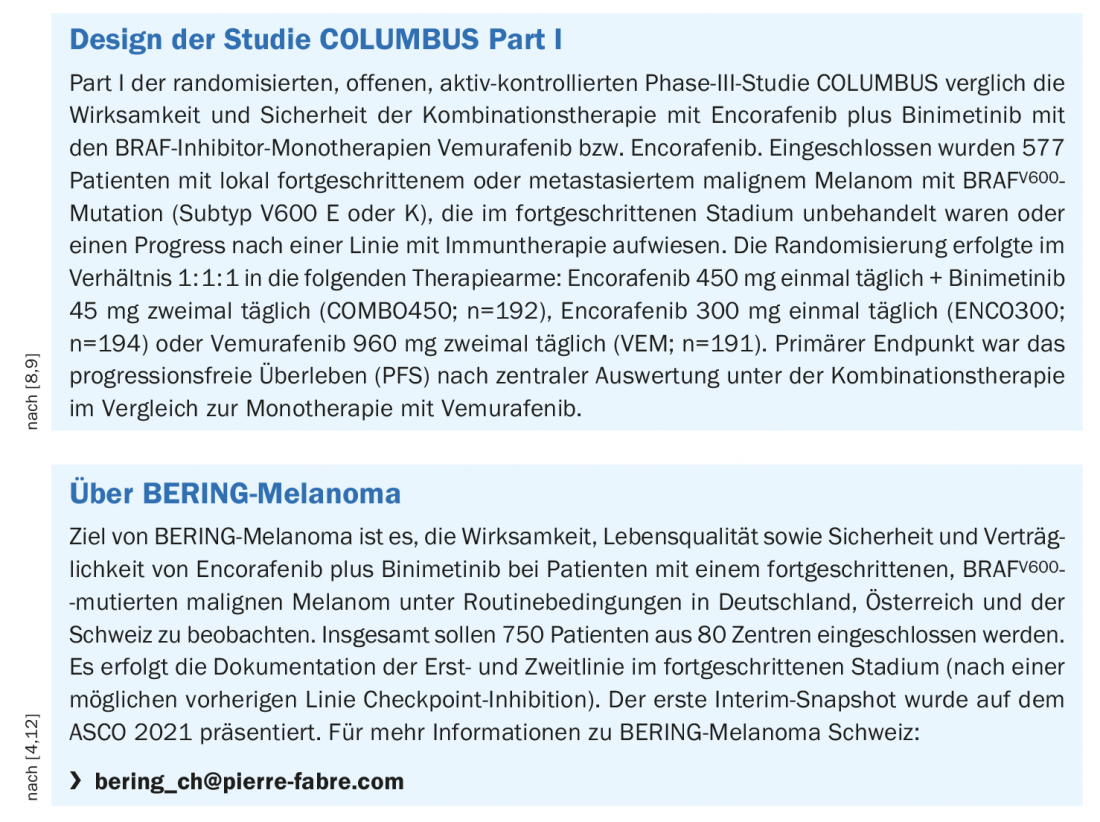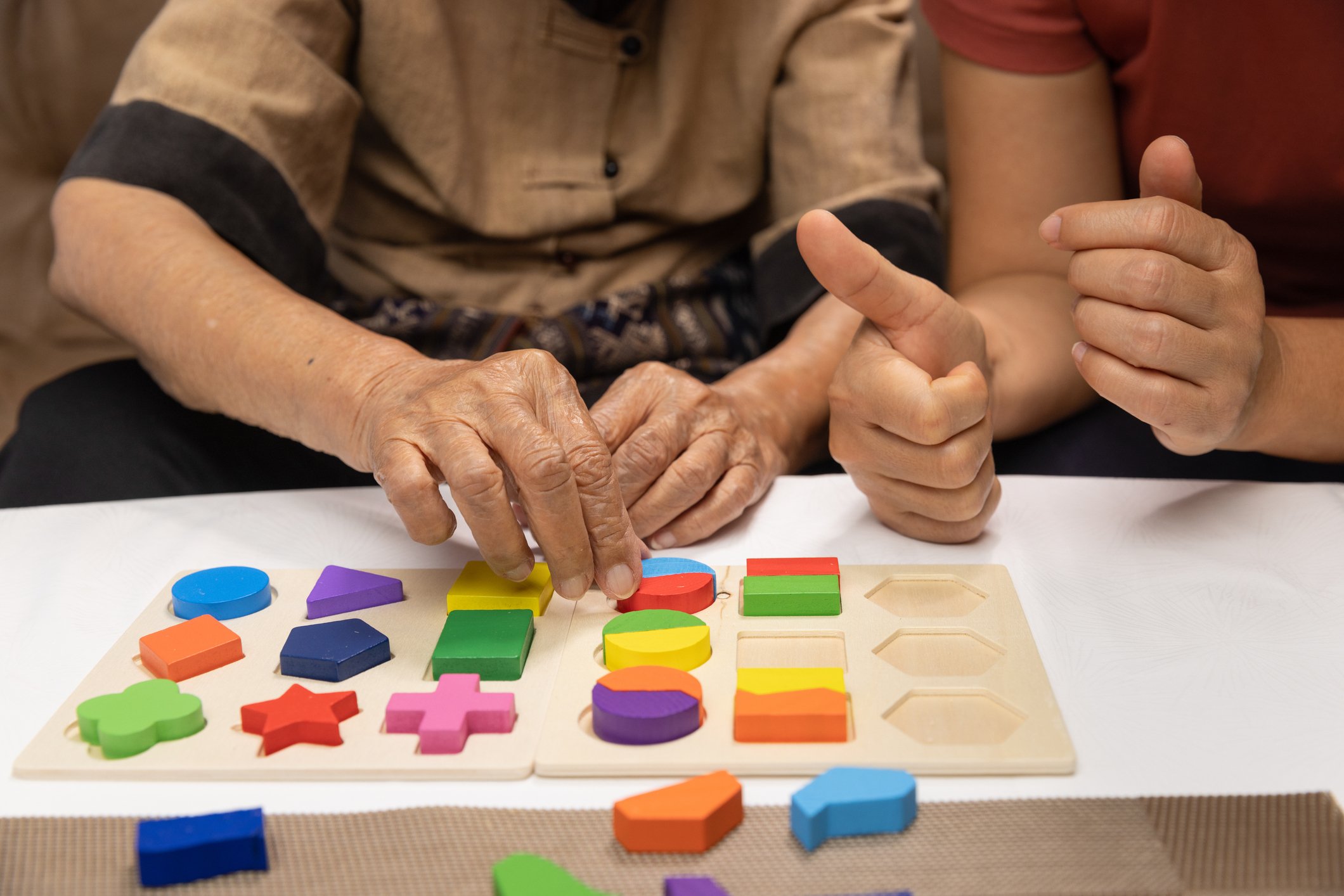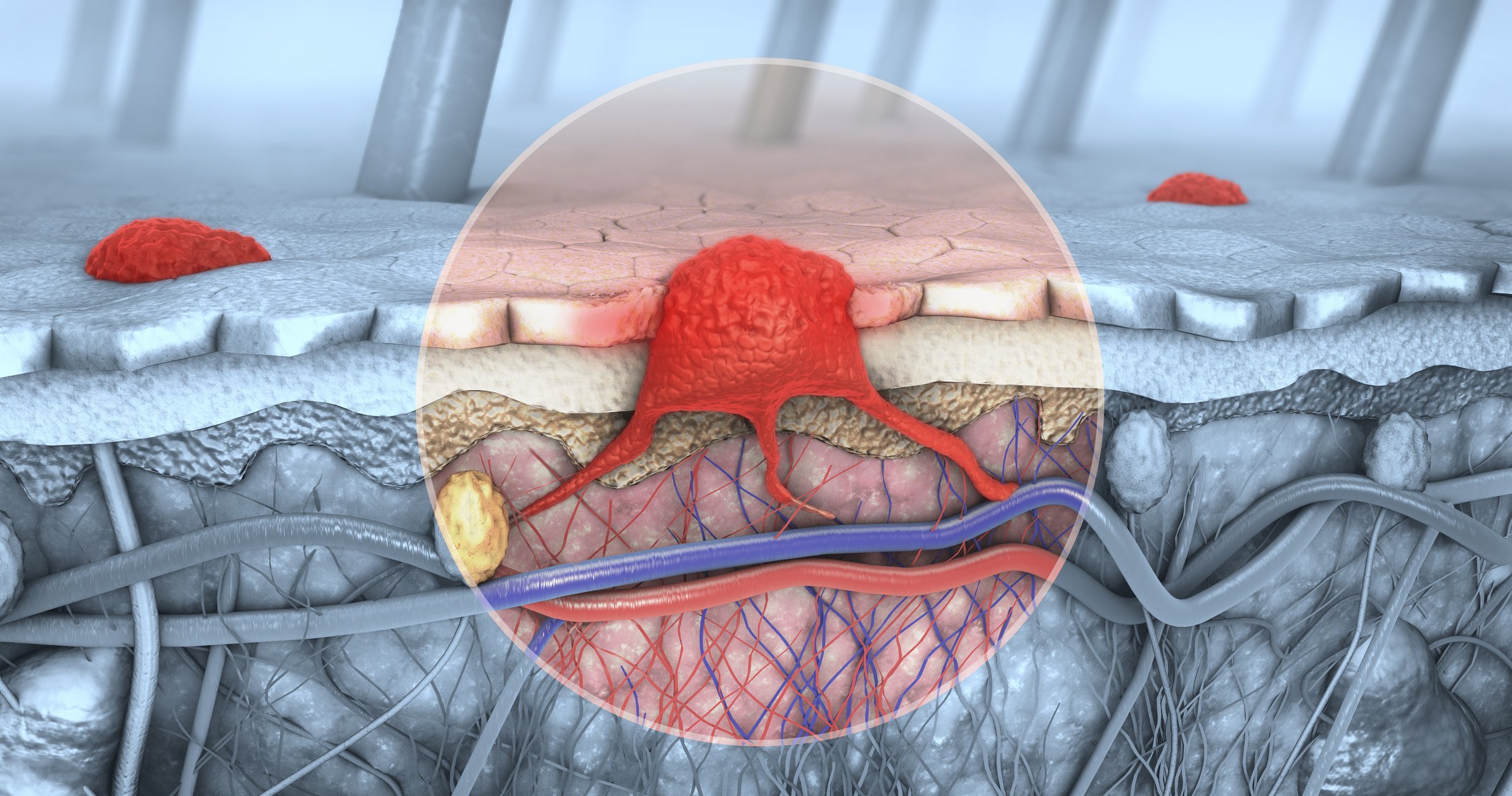Uptake of skin cancer screening plummeted in the corona pandemic. Therefore, early detection and treatment of skin cancer now deserves special attention. In patients with advanced melanoma and a BRAFV600 mutation, the combination of encorafenib plus binimetinib has proven effective.
Two years after the outbreak of the Corona pandemic, its impact on malignant melanoma care is becoming apparent. Uptake of skin cancer screening exams in 2020 was massively lower than the previous year, and this trend continued in the first half of 2021 with an average decrease of 14.3% compared to 2019, data from Germany show [1,2]. A look at several European countries indicates a slump in the number of skin cancer diagnoses, although data on this are not yet available for Germany, Austria and Switzerland [3]. Experts fear that there may be an increase in tumors detected only at advanced stages in subsequent years [4]. Preliminary data from Greece and France show that fewer melanomas were diagnosed overall in both countries than would have been expected [5,6]. In addition, more melanomas were diagnosed in advanced stages. In Greece, significantly more cases were detected in stages IIC, III, and IV in 2020 than in previous years [5]. After the first lockdown in 2020 in France, the proportion of stage III melanomas diagnosed doubled compared with 2019 (13% vs. 6%), whereas the proportion of stage IV melanomas remained constant (1% vs. 2%) [6]. The consequences of these delayed diagnoses for the health care system and the impact on the need for treatment of future cases remain to be seen.
Targeted therapy with encorafenib plus binimetinib
Experts agree that it is more important than ever to waste no time in the early detection and treatment of skin cancer [3]. In patients with advanced melanoma and a BRAFV600 mutation, the combination of encorafenib (Braftovi®) plus binimetinib (Mektovi®), among others, has proven effective [7,10–12]. Especially in advanced malignant melanoma, it is important to act quickly, especially since brain metastases, among other things, can be a frequent complication [13]. In this setting, targeted therapy can improve outcome [14–16]. Intracranial efficacy in patients with advanced BRAF-mutated malignant melanoma was observed with the combination of encorafenib plus binimetinib [10,11, 16,17]. In addition, initial evidence from day-to-day care of patients with advanced BRAFV600-mutated malignant melanoma using encorafenib (Braftovi®) plus binimetinib (Mektovi®) indicates adequate safety [10–12]. The tolerability profile observed to date is broadly consistent with the results of the COLUMBUS trial (box) ( median follow-up: 8.1 months) [7,12,18,19].
Source: Pierre Fabre
Literature:
- “Fewer skin cancer screenings in corona pandemic: delayed skin cancer diagnoses worsen prognosis,” BVDD, Feb. 17, 2022.
- Mangiapane S, et al: Central Institute for Health Care in the Federal Republic of Germany. www.zi.de/publikationen/trendreport-covid-krise, (last accessed May 30, 2022).
- Cariti C, et al: Cancers (Basel) 2021; 13(23): 6071.
- “Skin Cancer Month 2022: Possible late effects of pandemic feared in malignant melanoma,” Pierre Fabre, April 04, 2022.
- Lallas A, et al: J Am Acad Dermatol2021; 85(3): 721-723.
- Molinier R, et al: J Eur Acad Dermatol & Venereol 2021: 10.1111/jdv.17802.
- Dummer R, et al: Journal of Clinical Oncology 2021; 39(15_suppl): 9507-9507.
- Dummer R, et al: The Lancet Oncology 2018; 19(10): 1315-1327.
- Dummer R, et al: The Lancet Oncology 2018; 19(5): 603-615.
- Technical Information BRAFTOVI®, www.swissmedicinfo.ch, (last accessed May 30, 2022).
- Technical Information MEKTOVI®, www.swissmedicinfo.ch, (last accessed 30.05.2022)
- Richtig E, et al: Journal of Clinical Oncology 2021; 39(15_suppl): 9555.
- Gutzmer R, et al: Cancer Treat Rev 2020; 89: 102083.
- Saberian C, et al: Neurooncol Adv 2021; 3(Suppl 5): v75-v85.
- Drago JZ, et al. : Melanoma Res 2019; 29(1): 65-69.
- Holbrook K, et al: Cancer 2020; 126(3): 523-530.
- Khullar K, et al: Melanoma Res 2021; 31(4): 393-396.
- Ascierto PA, et al: Eur J Cancer 2020; 126: 33-44.
- Gogas H, et al: Eur J Cancer 2021; 152: 116-128.
DERMATOLOGY PRACTICE 2022; 32(3): 44












